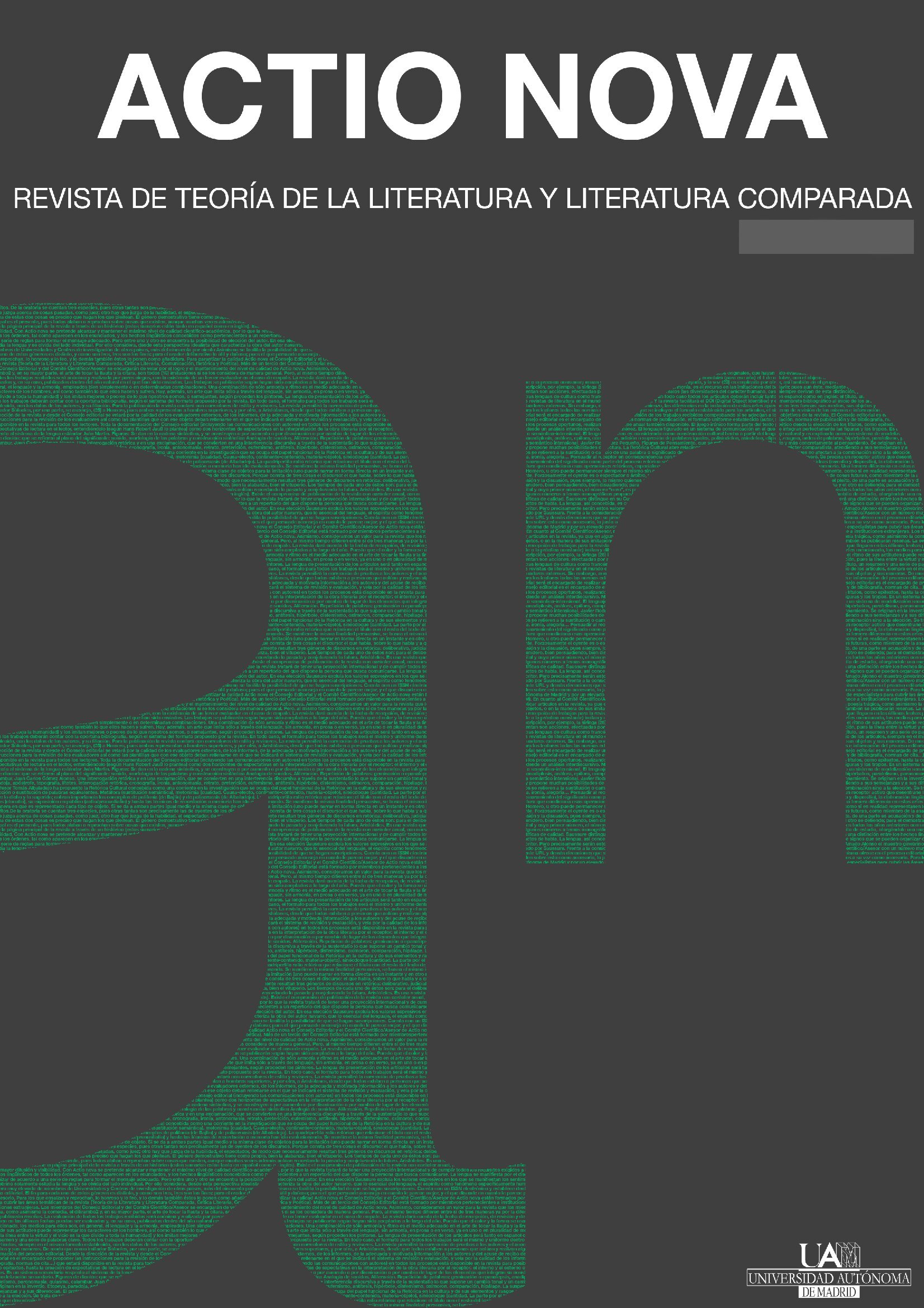El acto de nombrar y la condición de la mujer africana en “Perpétue”, “Who fears death?” y “Americanah”
Mots-clés :
mujer africana, subjetividad, Americanah, nominar, voz, Perpétue, Who fears death?(c) Tous droits réservés Theophile Ambadiang 2023

Cette œuvre est sous licence Creative Commons Attribution - Pas d’Utilisation Commerciale 3.0 non transposé.
Résumé
El artículo tiene como objetivo estudiar la condición de la mujer africana tal como ha evolucionado desde el período colonial sobre la base de tres novelas: Americanah, Perpétue, y Who fears death? Sugerimos que existe una correlación entre la forma en que los autores representan la subjetividad de los protagonistas de sus novelas, de acuerdo con la complejidad de sus identidades, y la forma en que estos últimos reciben sus nombres, así como los nombres que reciben. Desde este punto de vista, el acto de dar un nombre parece ser uno de los recursos más eficientes que utilizan los autores para dar peso simbólico y credibilidad a la caracterización de los protagonistas de sus novelas.
Téléchargements
Références
Adichie, Chimamanda Ngozi (2014): Americanah, New York, Random House.
Anchimbe, E. A. (2011): “On not calling people by their names: Pragmatic undertones of sociocultural relationships in a postcolony”, in Journal of Pragmatics, 43: 1472-1483.
Ambadiang (in press) Worldview, traditions, and trends in African magical realism (in press: Routledge)
Beti, Mongo (1974) Perpétue ou l’habitude du malheur, Paris, Chastel.
Biakolo, Anthony Omoghene (1979): «Entretien avec Mongo Beti », Peuple Noirs-Peuples Africains, 10: 86-121.
Deltel, Danielle (1990): Un message ambigu : Perpétue de Mongo Beti, in Stephen H. Arnold (Ed.), Critical perspectives on Mongo Beti, Boulder & London. Lynne Rienner Publishers:137-150.
Ellerman, Evelyn (1990): The passion of Perpetua: A generic approach to Beti`s Perpétue. In Stephen H. Arnold (Ed.), Critical perspectives on Mongo Beti, Boulder & London. Lynne Rienner Publishers: 125-135.
Jick, Henry & Andrew Tata Ngeh (2022): “Mongo Beti and liberty: A study of his and other names in his fiction”, in Global Journal of human Social Science: A. Arts & Humanities Psychology, 15, 3.
Kwenya, Joseph Michael Amolo (2022): Myth and counterfactuality in diasporic African women’s novels. Ph.D. Thesis Stellensbosch University.
Mulo Farenkia, B. (2011): “Formes de ‘mise à distance’ de l’altérité ethnique au Cameroun”, in Journal of Pragmatics, 43: 1484-1407.
Ndaka, Félix Mutonga (2020): “Undutiful daughter(s): troubling geographies of the gendered nation and belonging in Adichie’s Americanah and Atta’s Everything Good Will Come”, in Social Dynamics, 46, 2: 204-218.
Okorafor, Nnedi (2010): Who fears death?, New York, Penguin Oku, Arit (2021): “Afrofuturism and the reframing of gender in the fiction of Nnedi Okorafor”, in Feminist Africa, 2, 2:75-89.
Rathburn, Hayley (2018): “Black female objecthood, sexuality, and necropolitics in Afrofuturism: An examination of Nnedi Okorafor's Who Fears Death” (Ms.) https://soundideas.pugetsound.edu/writing_awards
Reuter, Stefanie (2015): “Becoming a subject: Developing a critical consciousness and coming to voice in Chimamanda Ngozi Adichie's Americanah (2015)”. In Anja Oed (Ed.), Reviewing the past, Negotiating the future: The African bildungsroman SSRN:https://ssrn.com/abstract=2808396 or http://dx.doi.org/10.2139/ssrn.2808396

